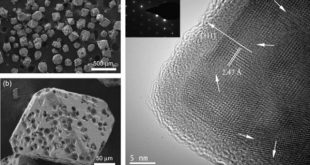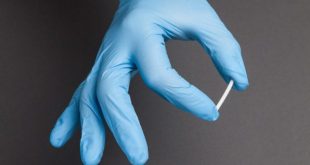Targeting medications inside the body is one of the great challenges of modern medicine. Most drugs are simply allowed to diffuse throughout the body, eventually coming into contact with the organ or tissue it was intended to affect, but a team of Chinese scientists may have found a better way. …
Read More »Drug delivery implants could change the way we approach chronic conditions
There’s a trend in medicine toward using implants to deliver medication over long periods of time. If applied to chronic pain management, it stands to wholly reorganize the field. This is one place where just throwing more technology at the problem has actually produced a visible improvement in patient outcomes. …
Read More »Homeopathic solutions now have to be labeled to disclose that there’s no science behind them
The FTC is playing whack-a-mole with pseudoscience again, and this time it’s targeting homeopathy. Their latest comments contend (PDF) that the standard disclaimer isn’t enough to dissuade consumers from buying this crap, so now not only do homeopathic products have to carry the standard disclaimer, they also have to say …
Read More »MDMA rolls onto the psychotherapy scene as FDA greenlights Phase III clinical trial
Remember the commercial? This is your brain on drugs. One could hardly forget the stark image, the idea that using drugs literally fries your brain. And it’s true that the brain changes in response to drug use. How it changes depends on the substance, dose, frequency and duration, as well …
Read More »Real-life tricorders are about to start consumer testing
Research that turns beloved sci-fi into science fact is probably my favorite thing, right up there with research published with no paywall. I’ve talked before about how easy it would be to make a tricorder, along with some other Star Trek tech. Lo and behold, the X Prize Foundation has …
Read More »ESA satellite watches San Francisco’s Millennium Tower sinking from space
San Francisco’s Millennium Tower is the tallest building in the city at 58-stories, filled with luxury condos inhabited by some very annoyed people. The building has gained a reputation as the “leaning tower of San Francisco” since is was revealed earlier this year that it’s started sinking and tilting. The …
Read More »The ESA has figured out what killed the Schiaparelli Mars lander
Official word has come from the ESA regarding the why and wherefore of Schiaparelli’s crash landing on the Martian surface. Mission scientists were able to recover data from the lander before its untimely demise, and that data has revealed much more about the sequence of events during Schiaparelli’s last moments. …
Read More »Want a Death Star? That’ll be $7.7 octillion per day
That’s no moon: It’s a gaping hole in the Empire’s budget. The Death Star, as depicted in the first Star Wars film from 1977, was a terrifying super weapon that could destroy an entire planet, but the bills for keeping it running may have been terrifying too. British energy supplier …
Read More »The 25 best Hubble Space Telescope images
The Hubble Space Telescope has been silently hovering above Earth for over 25 years, but it’s still returning spectacular images of the cosmos. That’s an amazing technological achievement. But it wasn’t always a smooth ride. By now, the story is well known: Despite a Herculean effort to test Hubble before launch, an imperfection …
Read More »Virgin Galactic’s new VSS Unity spacecraft completes test flight
Virgin Galactic seemed to be on the fast track to making space tourism a reality. Unfortunately, that was before the tragic 2014 loss of the SpaceShipTwo (VSS Enterprise) test vessel. The accident resulted in the death of one of the ship’s two crew and set back Virgin Galactic’s plans dramatically. …
Read More » #Bizwhiznetwork.com Innovation ΛI |Technology News
#Bizwhiznetwork.com Innovation ΛI |Technology News









